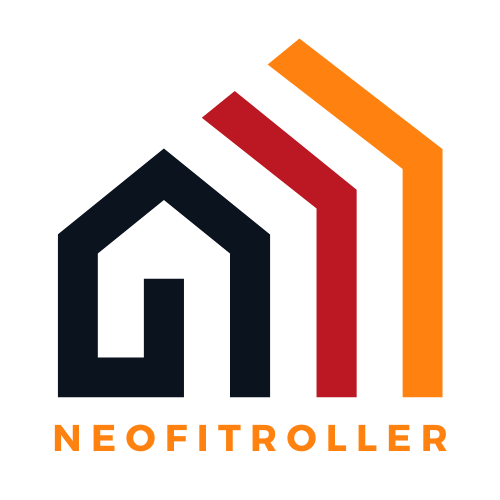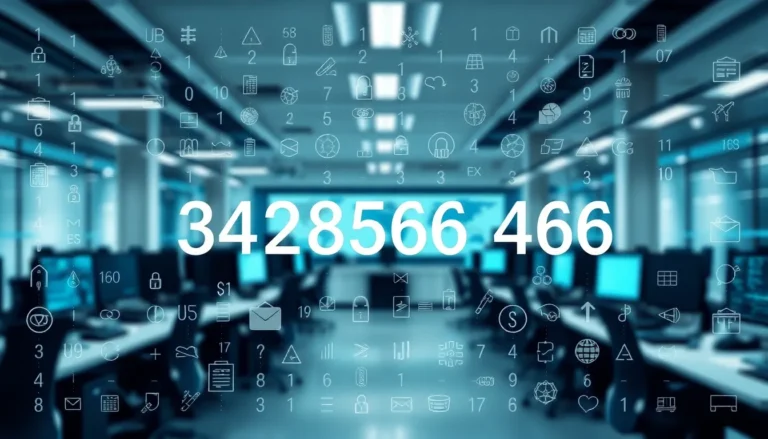Table of Contents
ToggleIn a world where everything from groceries to gym memberships can be handled with a few taps on a smartphone, why are some still writing checks for rent? Online rent payment isn’t just a trend; it’s a game-changer. Imagine never having to worry about lost checks or late fees again. It’s like finding a unicorn in your mailbox—magical and highly unlikely!
Overview of Online Rent Payment
Online rent payment systems have transformed the way tenants pay rent. These platforms enhance efficiency and streamline the entire rent payment process.
Benefits of Online Rent Payment
Online rent payment offers convenience for both tenants and landlords. Payments can process instantly, eliminating lengthy waiting periods associated with checks. Secure transactions reduce the risk of lost payments or checks. Automatic reminders help tenants avoid late fees, as notifications prompt timely payments. Many platforms also provide a user-friendly interface, simplifying the entire experience. Enhanced record-keeping features allow for easy tracking of payment history.
Challenges of Online Rent Payment
Adopting online rent payment can present some challenges. Not all tenants possess access to the necessary technology or internet connectivity. Security concerns regarding personal information may deter some users. Technical glitches can sometimes disrupt the payment process. Transaction fees may apply, affecting both tenants and landlords. Resistance from traditional landlords transitioning to digital systems often leads to reluctance in adopting new technologies.
Popular Online Rent Payment Platforms

Several online rent payment platforms offer unique features and pricing structures. Each platform caters to different tenant and landlord needs.
Features Comparison
Many platforms provide user-friendly interfaces, allowing quick transactions. Real-time payment notifications help tenants stay informed about their payment status. Security features, like encryption and fraud protection, ensure sensitive information remains safe. Some applications allow tenants to set up recurring payments, minimizing late fees. Automated reminders serve both tenants and landlords, preventing missed payments. Customizable payment options facilitate various payment methods, such as debit or credit cards. Integration with property management software enhances efficiency between landlords and tenants. Each platform’s features can significantly impact which one suits specific needs best.
Pricing Structures
Pricing structures vary significantly across online rent payment platforms. Many platforms charge a flat monthly fee, while others impose transaction-based fees. Some platforms offer free basic services but may charge for premium features. Payment processing fees can range from 2% to 5% per transaction. Landlords might prefer platforms with lower overall costs to maximize rental income. Certain platforms allow landlords to pass transaction fees onto tenants, depending on local regulations. It’s essential for both landlords and tenants to evaluate potential costs before selecting a payment platform. Understanding these pricing models can help in making informed decisions.
Security and Privacy Concerns
Online rent payment systems raise concerns regarding security and privacy. While these platforms enhance convenience, users must be aware of potential risks.
Data Protection Measures
Encryption serves as a critical layer of security, protecting sensitive information during transactions. Multi-factor authentication adds another barrier, ensuring only authorized users access their accounts. Regular software updates help maintain security protocols by addressing potential vulnerabilities. Many platforms also implement secure servers and data backup systems, minimizing the risk of data loss or theft. Users benefit from these measures, as they enhance trust in online payment systems.
Fraud Prevention Strategies
Fraud detection tools monitor transactions for unusual activity, helping identify potential threats. Alerts and notifications inform users of any suspicious actions on their accounts. Additionally, payment systems often have dedicated support teams to assist in reporting fraud incidents. Educating users on recognizing phishing attempts also plays a vital role in preventing fraud. Overall, these strategies aim to create a safer online payment environment for all users.
Future Trends in Online Rent Payment
Emerging technologies are shaping the future of online rent payment systems. Increased adoption of mobile payments allows tenants to pay rent directly from their smartphones. Landlords and property managers embrace app-based platforms that streamline the payment process and enhance user experience.
Blockchain technology is revolutionizing transactional security in the rental market. Enhanced transparency and reduced fraud risk result from the immutable nature of blockchain records. Early adopters may benefit from increased trust among tenants and landlords.
Artificial intelligence plays a key role in automating payment reminders and processing. Chatbots can answer tenant queries instantly, improving customer service. These efficiencies enable quicker resolution of issues related to payments or platform usage.
Integration with other financial management tools creates a holistic solution for landlords. Budgeting apps and financial trackers help tenants manage expenses better. Comprehensive platforms may facilitate collaborations between tenants, landlords, and property management professionals.
Adoption of digital wallets is expected to grow in online rent payments. By enabling convenient payment methods, tenants prefer systems that align with their banking preferences. Such flexibility may attract a broader audience of renters.
Sustainability initiatives influence new systems as providers emphasize eco-friendly practices. Digital transactions reduce paper waste and the carbon footprint of traditional rental processes. Environmental considerations will become increasingly important in attracting eco-conscious tenants.
According to industry forecasts, security advancements will remain a top priority. Regulatory compliance is essential as online payment systems evolve, ensuring they meet ever-changing data protection laws. Staying informed about these developments allows stakeholders to adapt quickly and maintain trust in the systems.
Embracing online rent payment systems marks a pivotal shift in how tenants and landlords manage transactions. The convenience and efficiency of these platforms streamline the payment process while minimizing the risks associated with traditional methods. With features like secure transactions and automatic reminders, both parties can enjoy a smoother experience.
As technology continues to evolve, the future of online rent payments looks promising. Innovations such as mobile payments and blockchain integration are set to enhance security and user experience. By understanding the benefits and challenges of online payments, landlords and tenants can make informed choices that best suit their needs. Adopting these systems not only simplifies rent management but also aligns with modern expectations for convenience and security.








